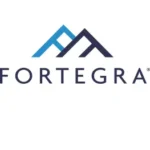Samsung Electronics is setting a new benchmark in the semiconductor industry by initiating the integration of hybrid bonding technology at its Cheonan campus, a move poised to significantly elevate its foundry services. The installation of state-of-the-art equipment from Besh and Applied Materials marks a strategic step towards adopting advanced packaging techniques, including the anticipated next-generation X-Cube technology.
Hybrid bonding, a sophisticated method for connecting wafers or dies, promises to substantially improve interconnect density and reduce wiring length over traditional bonding approaches. This technology enables the connection of tens of thousands of vias in a mere square centimeter, crucial for enhancing input/output (I/O) capabilities and power management in semiconductor devices.
This latest venture by Samsung Electronics underscores its commitment to advancing its packaging capabilities, with plans to implement hybrid bonding in its forthcoming X-Cube and Saint platform technologies. These platforms are expected to introduce innovative 3D packaging services, including Saint-S, Saint-L, and Saint-D configurations, designed to stack various types of dies for enhanced performance and functionality.
Samsung’s foray into hybrid bonding places it in direct competition with industry leaders like TSMC, which already offers 3D packaging services utilizing this technology under its System on Integrated Chip (SoIC) brand. The collaborative efforts of Besh and Applied Materials, including their established Center of Excellence in Singapore, have been instrumental in developing the hybrid bonding process, encompassing a comprehensive range of equipment essential for this advanced technique.
The adoption of hybrid bonding is not limited to Samsung and TSMC; Intel has also implemented this technology in its Foveros Direct 3D packaging technology, demonstrating the industry-wide recognition of hybrid bonding’s potential to revolutionize semiconductor manufacturing. With the semiconductor industry’s growing demand for more efficient and powerful chips, Samsung Electronics’ investment in hybrid bonding technology is poised to attract significant interest from major fabless companies, potentially securing partnerships with giants like NVIDIA and AMD.





